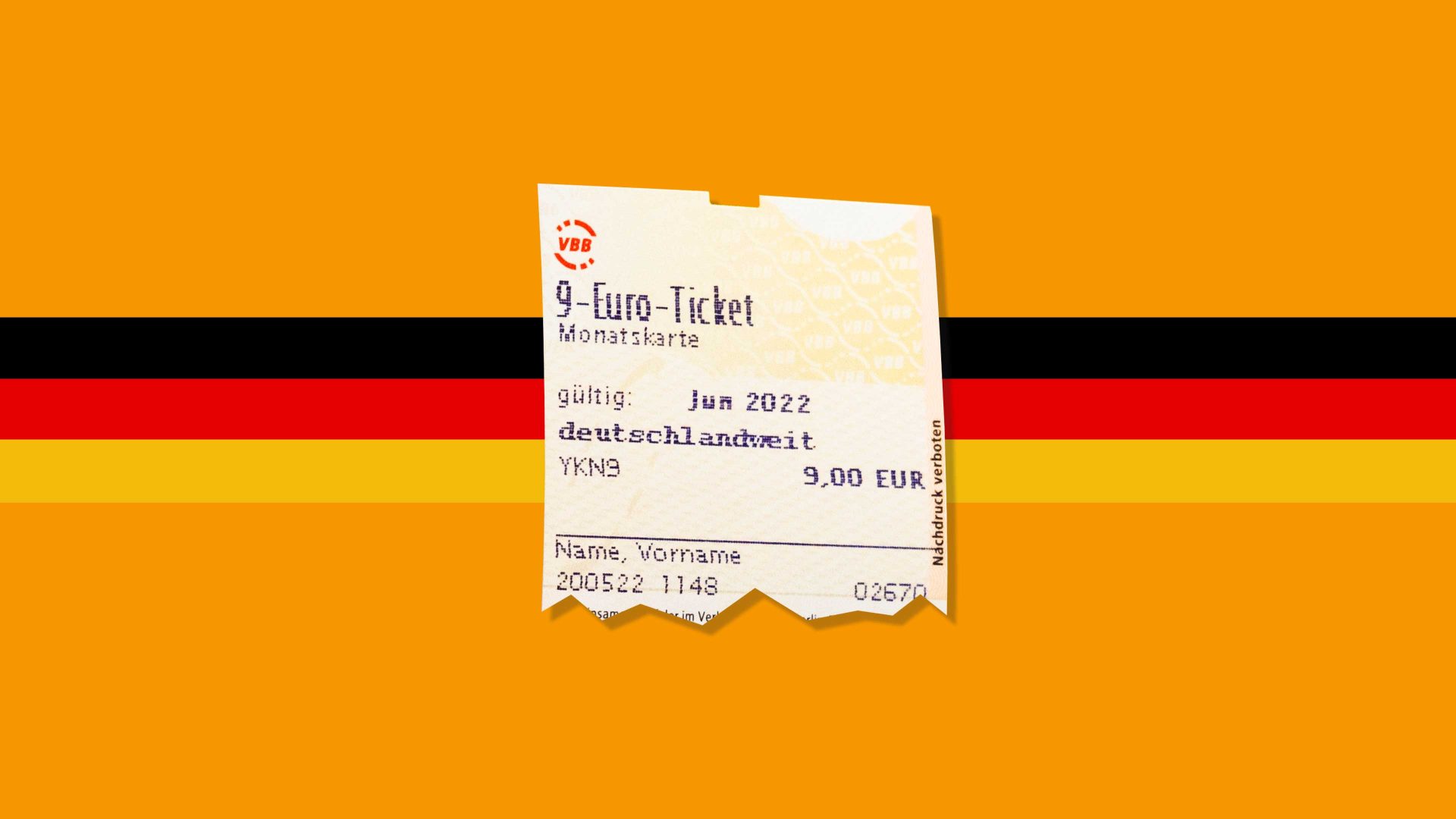After going cold turkey on the Anglo-German towel front for the last two years, you will have had ample time to devise new strategies to conquer the sun loungers in Spain – and I assume you cannot wait to implement them. More so, after the Telegraph recently advised Britons to avoid British heartland Magaluf and to invade Santanyí in the south-east of Mallorca instead.
Santanyí is a teutonic stronghold. You do not stand a chance. Germans have had time to prepare for towel victory, too, you know.
So here’s another suggestion: in a surprise attack, you could storm the German island of Sylt. Because in Germany, the “arguably best public transport deal in history” (the Independent) is waiting for you. And British tourists – even the drunken, sunburnt ones – would be more welcome on Sylt than the German crowds that recently paid the islanders a visit.
To explain why, let’s go to the starting point, that “best public transport deal in history”: for June, July and August a €9 flat-rate travel ticket has been introduced, a one-off for £7 a month, that will allow for unlimited travel within Germany as long as it is with regional and local Deutsche Bahn trains, trams, buses, underground and even some river ferries.
Express trains such as IC or ICE that don’t stop at every crossroads are NOT included, nor are privately operated services such as FlixTrain and Thalys.
The programme is part of a financial relief package to help people cope with the cost-of-living crisis, particularly Germany’s 13 million daily commuters. It also aims at enticing people to leave their car at home and travel in a climate-friendly way, although experts assume that the €9 ticket will not have an impact on suburban and rural areas.
Commuters there continue to rely on cars as they suffer from overcrowded or delayed trains and have far fewer public transport options in the first place.
According to a recent poll, fewer than 40% of rural residents are in favour of the ticket, compared with 60% of the urban population. Critics say that the cost of the scheme – around €2.5bn, or £2.14bn – would be better spent improving the public transport infrastructure and service in rural areas.
However, as with any state-directed plan, the €9 ticket has an unexpected effect: German weekenders have taken to rail trips for mini-holidays at mini-cost, albeit with much longer travel time and lack of comfort. You can’t reserve seats on local trains, and to get from the most southern part of Germany – Oberstdorf in the Bavarian region Allgäu – to Sylt you would have to change trains up to 11 times and be en route for about 24 hours.
Yet more than seven million people have already bought the flat-rate ticket. Now there are fears that the offer may have become too popular, crowding trains and, even worse, crowding Sylt with visitors who would normally never have found their way to the island. It is considered rather posh, the German East Hampton. Without the mansions, but with the mindset.
Nearly every single German media outlet dispatched at least one reporter to test the new ticket offer, and the favourite story was vox pops from Sylt, with officials and villagers expressing concerns about the island being packed (and taken over by the wrong set of people). News travelled fast to those deemed unwelcome, and some of them immediately seized their chance: Schalke football fans from Gelsenkirchen, a former coalmining region, and good old boozy punks made a point of claiming their €9 right of passage to North Sea Sylt. Without causing much damage and in fact no harm to anyone.
Last weekend, media interest shifted to Berlin, where police had to clear a regional train to the Baltic Sea because of the passenger load. Transport officials have since tried to discourage travellers from this route. But none of this should worry British holidaymakers, because train trips through the Black Forest, along the romantic central Rhine or into the Berchtesgadener Land with its Alpine panoramic views are equally nice.
Whether the €9 scheme will have any mid- or long-term effect no one knows. It has shown one thing: German local transport, until now divided up into complicated ticket, tariff and app systems of more than 100 transport associations run by states, cities, counties, districts etc as if they were 19th-century German shires and princedoms, could really do with a revolution. At least to this effect, the €9 ticket is a start.




